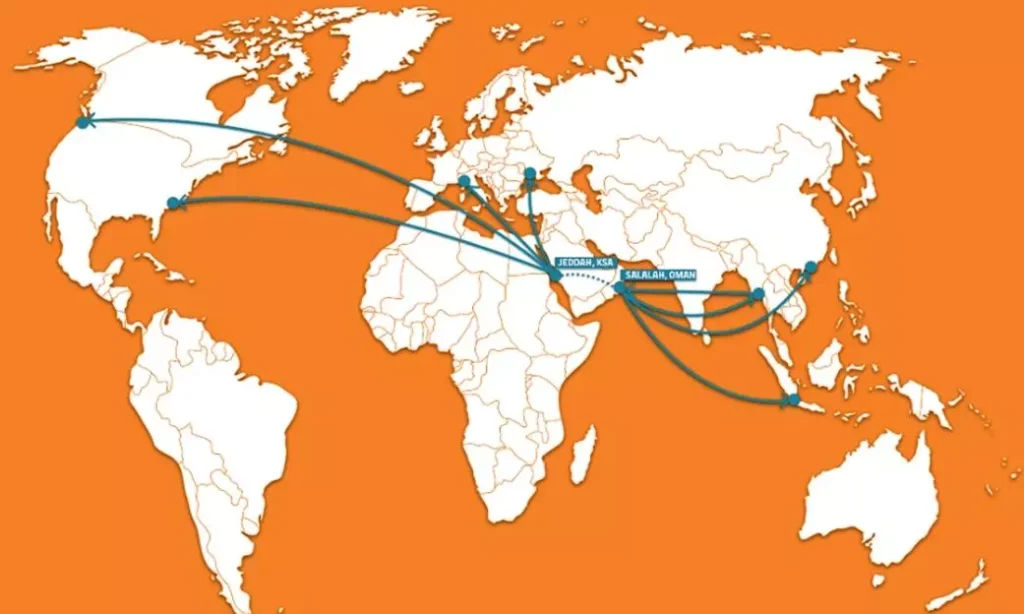In response to the consensus among shipping lines that disruptions in the Red Sea will persist, the Port of Salalah has introduced innovative multi-modal service options. This strategic move aims to provide a viable alternative to the lengthy rerouting around the Cape of Good Hope, which significantly extends transit times for global shipping operations.
The Port of Salalah emphasises that its new service options eliminate the need for a detour from the main East-West shipping routes into the Gulf of Oman. This advantage can save shipping companies a substantial 4-5 day detour, streamlining operations and reducing delays. By leveraging its strategic location, the Port of Salalah offers an in-transit overland route by truck to Jeddah. Situated at the safer midpoint of the Red Sea in Saudi Arabia, Jeddah serves as a critical juncture for this new logistical pathway. The overland journey from Salalah to Jeddah takes approximately 4-5 days, ensuring a swift transit that aligns with the needs of time-sensitive shipping schedules.
Upon reaching Jeddah, cargo can then be seamlessly transferred onto container vessels for continuation through the Suez Canal to destinations in Europe or the US East Coast. This route significantly cuts down the overall transit time compared to the current longer routing alternatives, providing a more efficient and reliable option for shipping companies dealing with the ongoing Red Sea disruptions.
The Port of Salalah, with an impressive annual capacity of 5 million TEU (twenty-foot equivalent units), is undergoing expansion to increase its capacity by an additional 30 percent. This expansion underscores the port’s critical role in global shipping networks, connecting South and East Asia with Europe, North Africa, and the Americas, as well as linking the upper Gulf with East Africa. Located strategically on the main ocean routes, the Port of Salalah is poised to become a pivotal hub in mitigating the impact of Red Sea disruptions, ensuring smoother and more efficient global trade flows.







